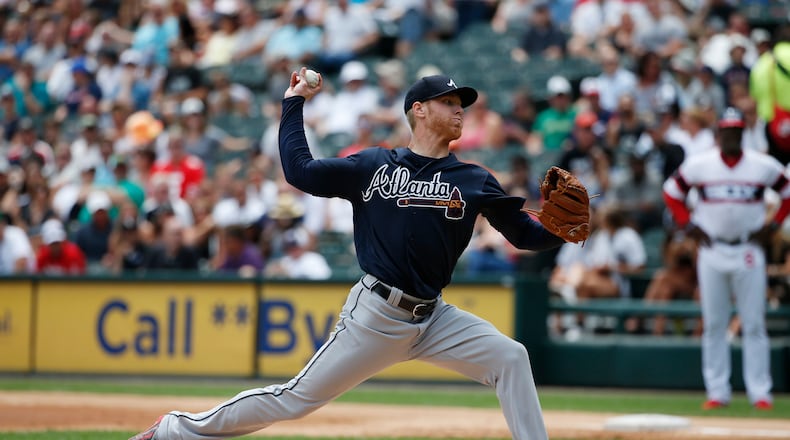On the morning of May 1, the Atlanta Braves were on pace to lose 127 games, which would have been a modern MLB record. On the morning of May 15, when Fredi Gonzalez was officially fired, they were on pace to lose 123, which still would have been a record. On the morning of June 1, they were on pace to lose 112 games, which would have been the most by any team since the 2003 Tigers.
As of the All-Star break, the Braves are on pace to lose 106 games, which would match the most in Atlanta history but would, I submit, be acceptable in the grand scheme. As noted, there’s a difference between being bad and historically bad. As we’ve seen, triple-digit losing need not be a permanent condition. The Cubs won 97 games three years after losing 101. The Astros made the playoffs two years after losing 111.
At the moment, we’re mostly going on faith. Few of the Braves’ lovingly assembled prospects have reached the majors, and the biggest name who has – Aaron Blair – was summarily demoted after being roundly unimpressive. But this tear-down-to-build-up was never designed as a quick fix. The Braves haven’t yet had enough top draft picks for that to happen. (The Cubs and Astros had a slew.)
What we’re seeing at the big-league level probably won’t bear much impact on what we’ll see in 2018, but recent events have been mildly encouraging. Mauricio Cabrera throws even harder than Arodys Vizcaino. (Who hasn’t been as good lately, alas.) Jace Peterson appears to be a useful big-league player again. Mike Foltynewicz is starting to show us what the fuss was about. Ian Krol, whom the Braves got for Cameron Maybin, has been quite good. Julio Teheran – Saturday’s blip notwithstanding – has been superb.
While watching these Braves, I break the players into two categories: Those who are apt to be here when/if this team gets good again, and those who aren’t. I don’t really care what A.J. Pierzynski or Erick Aybar do (or don’t do) anymore because they’ll be gone soon. But Krol, who’s 25, and Cabrera, who’s 22, interest me. I wish Blair had been better, but Matt Wisler has shown enough to make you think he could be as advertised – a No. 4 starter in a good rotation.
And anyone who would give up on any young pitcher is advised to check the 1988 stats for the 22-year-old Tom Glavine: An ERA of 4.56, 84 strikeouts (in 195 1/3 innings) against 63 walks. He turned out OK.
The numbers that concern me about the Braves are the ones concern everyone: They’re last in the majors yet again in runs and way last in homers. But they’re 14th in the majors – among the upper half, in other words – in ERA, and any team that can pitch has a chance. (If the playoffs started today, the top seven teams in ERA would qualify or be tied for the final wild card.) There’s much more pitching on the way, and some of that pitching could fetch a bat or two.
The Braves’ record is somewhat worse than I thought it’d be – I picked them to go 71-91 – but they’re 22-29 under Brian Snitker, which would project to 70-92 over a full season. In sum, they’ve stopped being an abject embarrassment. They’ve become just another bad team, and that's OK.
As we know, bad teams needn't stay bad forever. The 1988 Braves finished 54-106. Three years later, they graced the World Series.
About the Author


